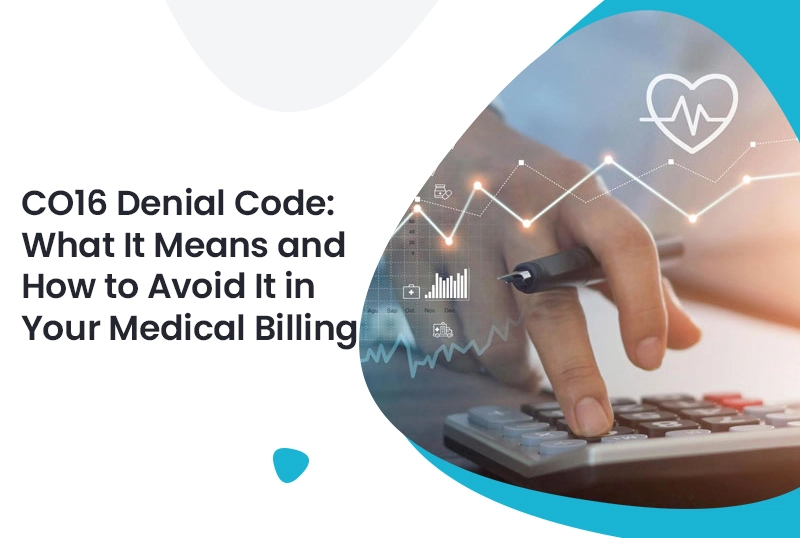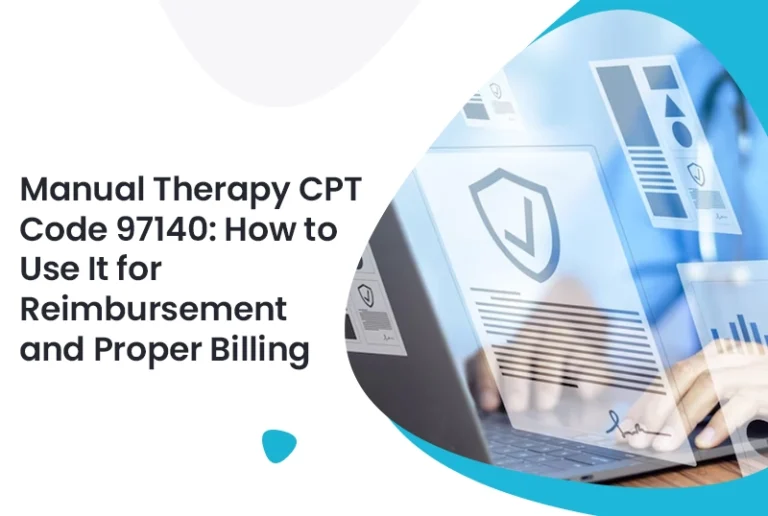If you’ve been involved in medical billing, you’re probably familiar with the CO16 denial code. This code is used by insurance companies to indicate “charges not covered because this is not a contract benefit”. This can lead to rejected claims, causing unnecessary delays in reimbursement and added administrative work for your practice.
Crucially, one should understand the CO16 denial code and how to avoid it. Many small businesses find that working with a reputable medical billing company helps guarantee appropriate claim filing and lowers their chance of such denials. We will go over the CO16 denial code, its causes, and how to prevent it in your medical billing systems in this article.
What Is the CO16 Denial Code?
The CO16 denial code typically appears when an insurance company determines that a service or procedure isn’t covered under the patient’s plan. This can happen for various reasons, including:
- Out-of-network services: The patient receives care from a provider not covered by their insurance network.
- Non-covered procedures: Some procedures or services may not be considered a benefit under the patient’s insurance policy.
- Incorrect coding: The billing code used doesn’t match the insurance plan’s coverage.
In these cases, the insurance company will deny the claim, sending the CO16 denial code to the provider. While this can be frustrating, understanding the reasons behind it can help you take corrective actions.
Common Causes of CO16 Denial Code
There are several reasons why a CO16 denial might occur, and knowing these reasons can help you avoid them in the future.
1. Out-of-Network Providers
If a patient seeks treatment from a provider who isn’t in their insurance network, the insurance company may deny the claim with the CO16 denial code. In this case, the patient may be responsible for the full cost of the service.
2. Non-Covered Services
Sometimes, certain procedures or services aren’t included under the patient’s insurance plan. For example, cosmetic procedures or experimental treatments may not be covered, resulting in a CO16 denial.
3. Incorrect CPT/ICD-10 Codes
The wrong codes used on the claim form can trigger a CO16 denial. If the insurance provider believes the codes don’t align with their coverage, they may issue a denial.
4. Outdated or Incorrect Plan Information
If the insurance provider has outdated information about the patient’s plan or coverage, it can lead to a CO16 denial. Always ensure that the patient’s insurance details are up to date.
How to Avoid CO16 Denial Code in Your Practice
Now that you know what the CO16 denial code is and why it happens, let’s look at how to avoid it. By implementing a few simple best practices, you can minimize the chances of your claims being denied.
Verify Insurance Coverage Before Service
Always check with the patient’s insurance provider before offering services. Confirm if the planned treatment is covered, and make sure the provider is within the patient’s network. This step can help avoid the CO16 denial code due to out-of-network services.
Use a Professional Credential Service
Utilizing professional credential services ensures that your practice is correctly listed in insurance networks. By maintaining up-to-date credentialing and ensuring your team’s provider numbers are active, you can avoid issues related to out-of-network providers and services.
Ensure Accurate Coding
Proper coding is essential for accurate claims processing. Always double-check that the CPT codes and ICD-10 codes used are correct and align with the insurance provider’s covered benefits. Having a medical billing company handle coding can reduce errors and ensure that your claims are filed correctly.
Keep Patients Informed About Their Coverage
When patients are aware of what’s covered under their insurance, they can make more informed decisions about where and from whom they receive care. Discuss coverage options during consultations and verify coverage details before performing procedures.
Best Practices for Handling CO16 Denial Code
Even with the best practices in place, mistakes can happen. If a CO16 denial code does occur, here’s how to handle it effectively:
Step 1: Review the Denial
Start by thoroughly reviewing the explanation of benefits (EOB) from the insurance provider. Look at the specific reason for the CO16 denial. If the reason is unclear, contact the insurance company for clarification.
Step 2: Correct Any Errors
If the denial is due to incorrect coding, update the codes and resubmit the claim. If the issue is out-of-network services, you may need to provide an exception or referral letter from the patient’s primary care physician.
Step 3: Appeal the Denial
In some cases, you may be able to appeal the CO16 denial code. Work with your medical billing company to submit an appeal that includes supporting documentation, such as updated insurance information or medical necessity notes.
Step 4: Communicate with the Patient
If the denial is due to non-covered services, inform the patient promptly. They may need to work with the insurance company or pay out-of-pocket for the service.
Conclusion
Although the CO16 refusal code can be a major obstacle in the billing process, knowledge of the causes and how to solve them will allow you to prevent it. Reducing the possibility of CO16 denials requires confirming insurance coverage, employing proper coding, and verifying credentialing of your clinic.
Using professional certification services and working with a reputable medical billing business will help to simplify your billing procedures and avoid these problems from starting. Recall that prompt reimbursements and the lowest possible claim rejection depend on correct medical billing and coding.
FAQs
Q1: What should I do if I receive a CO16 denial?
Review the reason for the denial, correct any issues, and appeal if necessary. Make sure to keep the patient informed about the situation.
Q2: Can a CO16 denial be appealed?
Yes, you can appeal a CO16 denial by providing additional documentation or correcting any errors in the claim.
Q3: How can I prevent CO16 denials in the future?
Ensure accurate coding, verify patient insurance details, and use credentialing services to stay in-network with insurance providers.
Q4: Is a CO16 denial always related to out-of-network services?
Not always. A CO16 denial can also occur due to non-covered services or incorrect coding.







